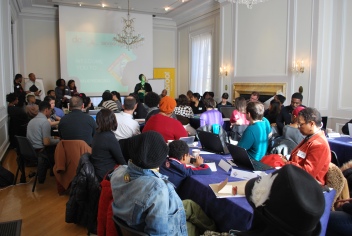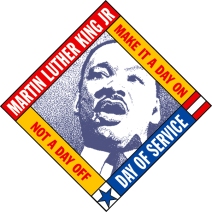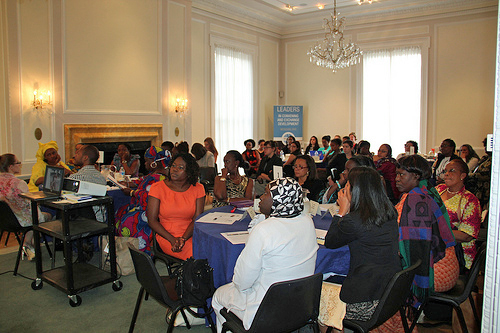We were thrilled to celebrate the newest additions to the DC Social Innovation Project family last week at our new grantee reception. And by this, I most definitely mean an all-star new class of grantees. But I also mean one of the most impressive gatherings of up-and-coming probono consultants you will likely find in the DC metro area. And I include our supporters and a new circle of friends of DC Social Innovation into this growing family. Together, we are taking the first small bites to tackle some of the biggest challenges in poverty.



- The Paper Project is supporting middle school engagement and empowerment by launching student-run newspapers in low-income schools. Wise Young Builders is using carpentry to build math skills and confidence among DC’s poorest children. These programs matter because DC’s high school dropout rates are the highest in the nation– 40% of all students don’t graduate and low-income middle school engagement is increasingly emerging among experts as a critical intervention opportunity to reverse this trend.
- Street Sense’s Digital Hope project is creating new digital careers for DC’s homeless with a goal of doubling the income that its vendors currently make selling its paper. This is critically important to their mission because entry-level, minimum wage jobs are no longer enough to pull DC’s homeless population out of poverty. DC families would have to work 132 hours per week, 52 weeks a year at the minimum wage just to afford rent for standard 2-bedroom apartment in DC.
Our role at DC Social Innovation Project is to empower bootstrapped entrepreneurs that are working to strengthen communities. Our grantees provide tools to shift DC residents from survival mode to success mode with full embrace of their power and agency. Building up communities from the inside-out is a highly effective strategy to empower communities and foster long-term success that sticks. It is about dignity and hope.
We believe that ideas and creativity are the building blocks of social change. Block by block and program by program we are taking little bets to transform communities who struggle daily to find access to food, jobs, and housing. We are thrilled to continue the journey of innovation with these new grantees and look forward to sharing our discoveries with you!
In Partnership,
Melissa Ehrenreich, Executive Director
p.s. Help us give more grants of hope and transformation by signing up today as a Community Investor, your small, monthly donation can make a world of difference to DC residents!
 DC Social Innovation Project partnered with Taproot Foundation DC and IMPACT to host
DC Social Innovation Project partnered with Taproot Foundation DC and IMPACT to host 



 How it will work…
How it will work…


